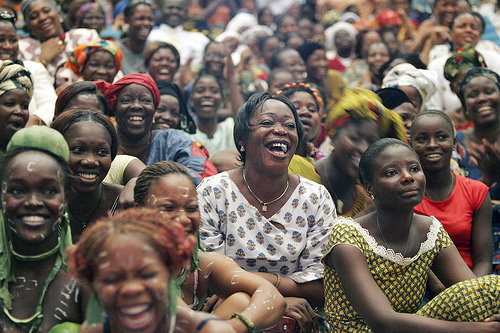Reconciling the Act of Love and the Commandment of Love


This past week, I had the pleasure of being one of the representatives of IRSAM to the fifty-eighth session of the Commission on the Status of Women at the United Nations Headquarters in New York City. The priority theme of the conference was the challenges and achievements in the implementation of the Millennium Development Goals for women and girls, specifically access to and participation of women and girls in education, training, science and technology for the promotion of women’s equal access to full employment and decent work. I am happy to be reporting about my experience here in New York.
I had the opportunity to attend a side event entitled “An inter-generational dialogue on faith, culture, HIV and sexual reproductive health and rights” hosted by Norway, World YWCA, Norwegian Church Aid, the Ecumenical Alliance, ARROW and the World Council of Churches.
One issue that came to the forefront is the power struggle between women’s empowerment specifically with regards to sexual reproductive health, and accounting for the dignity of religious and cultural groups. It is no secret that women’s rights and religious freedom consistently come into contact and conflict with one another. The lines become blurry and balancing rights and interests is a constant challenge for respective states and for the international community as a whole.
Hans Brattskar Secretary of State from Norway eloquently explained the challenge by noting that faith and culture can be used to undermine the rights of women and girls, and while faith and culture should be respected, respecting dignity means looking within traditions and changing norms. He highlighted that culture is not static; rather it changes over time. There is no doubt that faith and cultures influence sexual reproductive health and prevention and responses to HIV. He noted that a lack of access to sexual education is a violation of basic rights. Women require access to services as well as to correct information about sex and sexually transmitted disease.
To complicate matters, faith-based NGO’s or organizations run many of the services in rural areas in the developing world such as seen in Africa. Therefore, it is crucial that these faith-based organizations promote sexual health. For example, the World Council of Churches explained that to respond to the AIDS epidemic they have entered a strategic partnership with the World Health Organization and UN Aid to work with member churches on HIV/AIDS prevention as well as addressing social injustices driving the pandemic.
There is an urgent need to find common ground and to work with religious groups to provide support for sexual rights, access to information, and a forum to discuss issues affecting women. Presenting her views, Mitsunge Kachinwe a young woman from Malawi on her first trip outside Africa, noted her goals in urging religious leaders to reduce the stigma surrounding these issues, in favour of compassion which has grounding in all religions, in the belief that all people should be treated with dignity and respect. She noted that there is a need to challenge inequality in religious hierarchy within faiths advocating that every human is made in the image of God. Through using religious language she is seeking to modify norms from within these faith groups. Hendrika Okondo cracked a joke that was apropos, namely, that while love is the greatest commandment in Christianity; the greatest stigma surrounds the actions of love and sex. There is truth in this.
To conclude, it is evident that for widespread change to be effected, cultural and faith-based voices must be accounted for at the inter-governmental level and included in decisions and strategies regarding the empowerment of women specifically in matters of sexual reproductive health. And as Loretta Minghella from Christian Aid noted, culture is not static; it can change, and it must change. As Azza Karam highlighted, faith is not divided uniformly across national lines, it is much more complex and nuanced. Dealing with sexual reproduction issues within faiths will largely depend on the strength of its advocates and as she notes this is where the power of civil society lies. So, lets use our power.
